All images by Lynsey Weatherspoon. Used with permission.
“I feel pain and grief,” says Lynsey Weatherspoon when asked how she feels while photographing the BLM movement. She adds, however, “There’s always joy in seeing people come together to protect our hearts as we navigate a better and more equal and equitable world.” Weatherspoon is a black female photographer. Photographing the events over the past year has been difficult, but she’s strong, and the evidence of that shows up in the quality of her work. It’s impressive. We caught up with Weatherspoon to see learn the full extent of her experience during these challenging times.
“There’s a sense of community when you’re in the Black Lives Matter movements, comradery and participatory actions that reflect what the world needs most: healing and love.”
— Lynsey Weatherspoon
Phoblographer: From a photojournalist’s perspective, there have been many topics to cover in the U.S. this past year. What’s been your main focus and why?
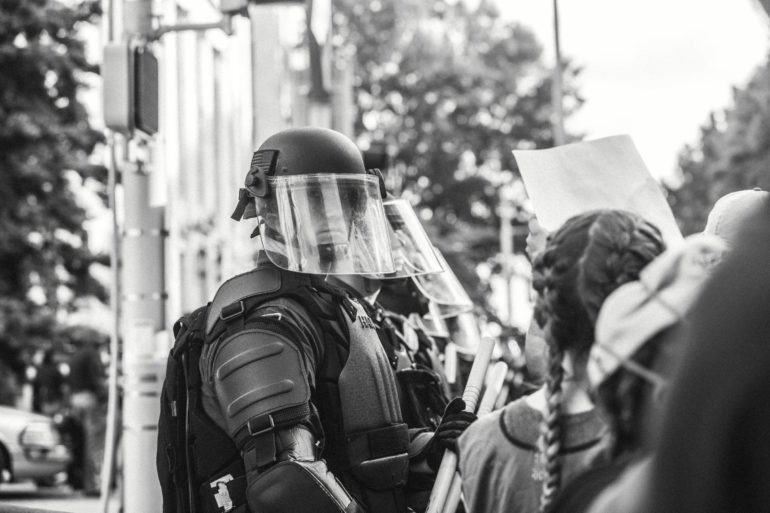
Lynsey Weatherspoon: My main focus has been the same as most assignments and projects that I receive: sharing a balanced perspective on stories that affect my communities (Black, LGBTQ+, and women’s issues). When we connect to those we photograph, our energy and emotions are in tune with what affects their daily lives, as those same issues may be part of my own life. Every day allows me to meet someone different and navigate a story that will impact so many people worldwide.
Phoblographer: How do you transmute your feelings into your photography?
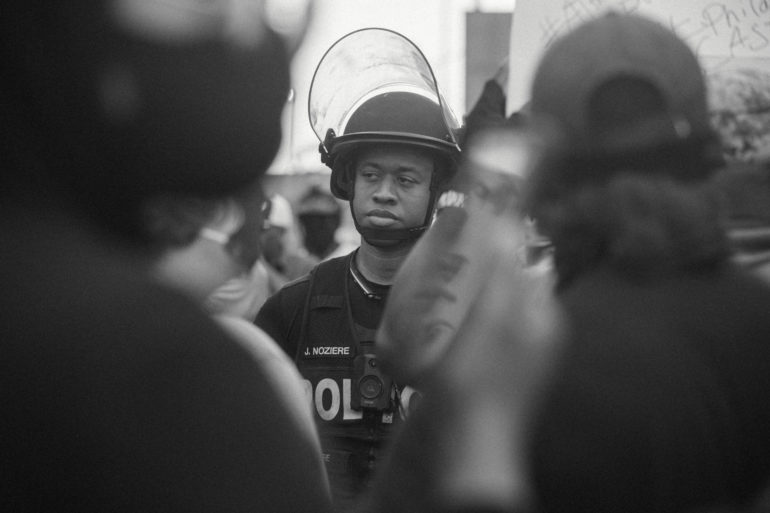
Lynsey Weatherspoon: When you’re deeply connected to your community, various emotions are ever-present. While making photographs during various Black Lives Matter protests, it was important that I listened and observed before taking a photo. Having conversations as we all walked together made a difference in how and when I decided to pick up my camera. Being part of the action was my sole purpose because I was deeply hurt by what happened to George Floyd and others such as Tony McDade, Ahmaud Arbery, Rashaad Brooks, and countless Black people killed by police.
I wouldn’t be honest if I didn’t say that I wasn’t traumatized by actions that could happen to me or my own family and friends. I pour my heart into the work to reflect what I’m feeling in order to show people they are not alone in the way they feel.
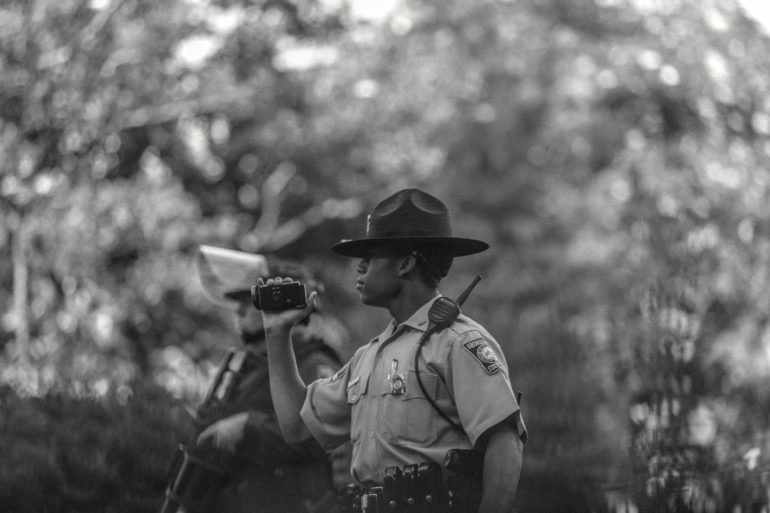
Phoblographer: As a black photographer, do you feel pressure to photograph issues relating to the black community in a certain way? How do you handle that?
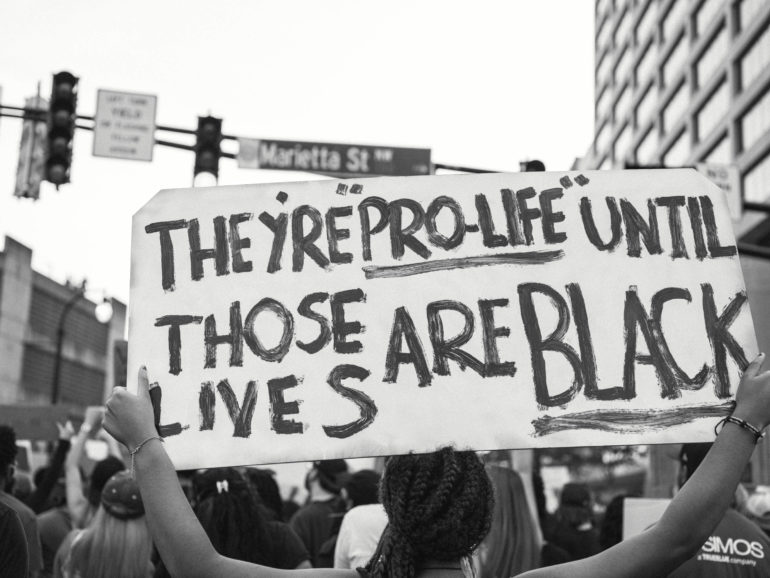
Lynsey Weatherspoon: It is imperative that Black photographers document our own communities to understand the tone and nuances of our inflections and mannerisms. I’ve seen countless imagery that was exaggerated, which creates tone-deaf and misinformed images created within the White gaze.
So, the first thing any photographer should do is make themselves known in an unfamiliar space instead of trying to document something that they don’t understand. That same train of thought goes into how I approach any community I’m unfamiliar with, and it will always be my approach. It allows me to make images that speak with dignity and proper understanding of the space I’m currently occupying.
Phoblographer: You learned about photography from your mother. What were the key skills she taught you?
Lynsey Weatherspoon: My mother taught me patience and kindness. When I was learning how to make photographs, we were never in a rush to make the perfect image. We made it a point to look at what we were shooting from all sides, observing how light shaped the subject.
I approach portraits in the same quiet way. I feel like she’s always looking over my shoulder while I’m making photos, which gives me a glimpse into her spirit towards our love of photography.
Phoblographer: In your latest YouTube video, you speak about the number of black photographers on YouTube. Do you feel we need to see more black photographers on YT, and why do you feel the numbers are lacking on the platform?
Lynsey Weatherspoon: I really feel a Black perspective informs so much into how we relate to things. I’m starting to see an increase in Black talent on YouTube, yet not to the status of those who always gain more followers than most. I notice that access is a barrier to growth among Black photographers and filmmakers. And I’ve also noticed that, to be successful, there’s a feeling that you have to attach to a successful channel run by a white YouTuber to gain followers.
With hurdles such as these, it makes it a bit difficult to see the reason of rising as a notable name on YouTube. If we’re in the age of fostering community, I hope to see more collaborations between those channels with larger numbers and Black creators to share the access, as they do with their white counterparts. Equity can be shifted and shared, and it’s time that it happens.
Phoblographer: You produce awesome content on your channel. What’s been the biggest barrier to being consistent over the past 12 months?
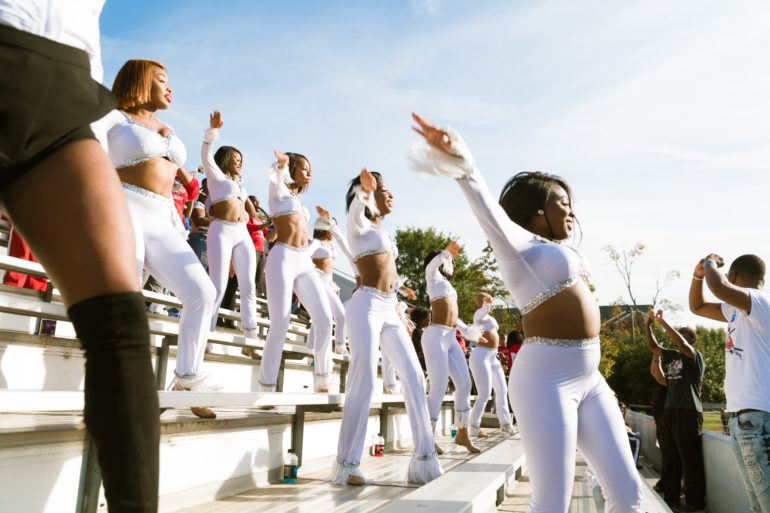
Lynsey Weatherspoon: Thank you! My biggest barrier has been time. My career took a huge shift, which involves more travel and more time on assignments and set. I really enjoy making content and hope to, at least, make one to two videos a month to share my experience in this changing field.
Phoblographer: Away from your photojournalism, you’re a highly-skilled portrait photographer. What kind of shoot excites you the most?
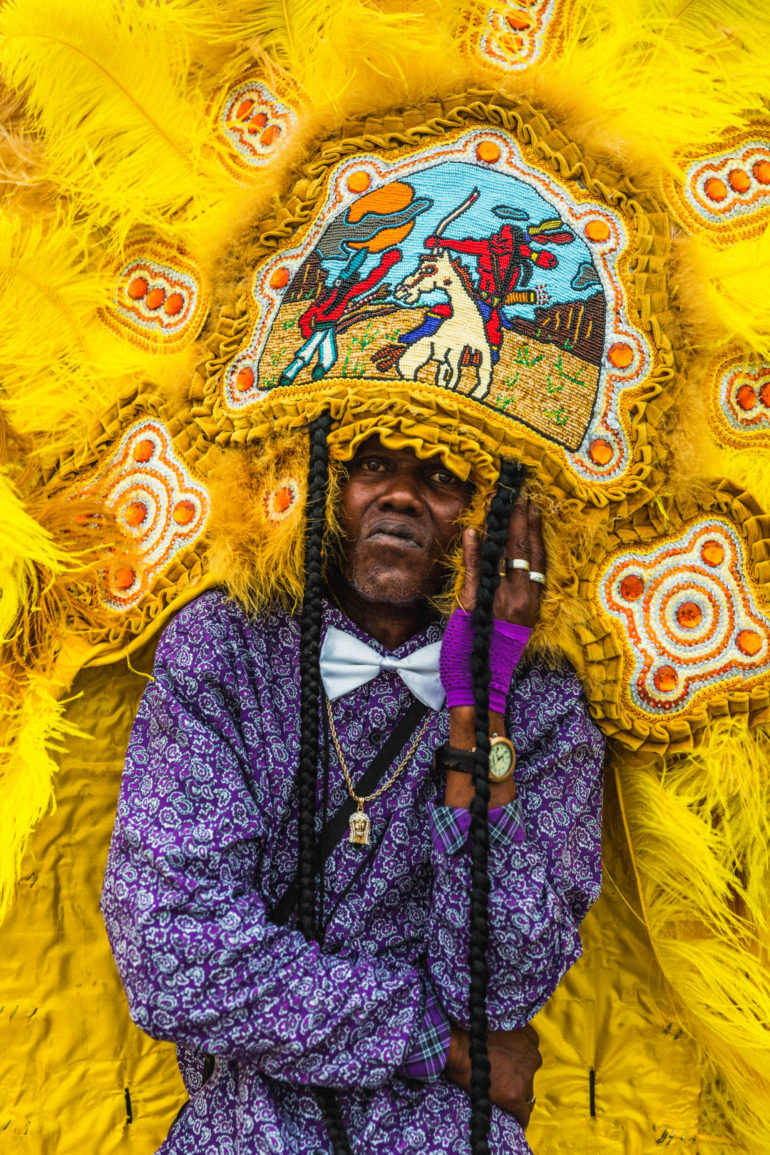
Lynsey Weatherspoon: Ah, I love portraiture. Face-to-face time is priceless. I love it when I can make time to joke around and learn from everyone that I photograph. So, photoshoots where there’s tons of energy really excite me and keep me pumped as a photographer.
Phoblographer: Allowing you to put modesty aside, what do you feel are your biggest strengths when it comes to portrait photography?
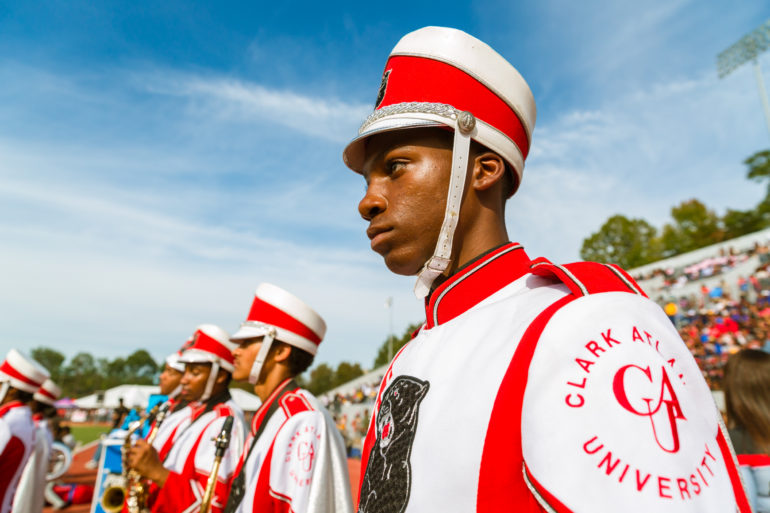
Lynsey Weatherspoon: Patience is my biggest strength. Many people have told me that they don’t feel photogenic. I know every person has a smile or warmness within them, and we won’t leave until I know I
have that one photo that surprises them. Believing in someone’s ability to see themselves is what keeps me growing as an artist, empath, and better human.
Phoblographer: It’s a new year. What are your main goals for 2021?
Lynsey Weatherspoon: I have so many! I want to photograph a few campaigns and keep making personal work. I’m currently working with my family to create our family archive, which will keep me busy for a while. Other than that, I want to keep making work where dignity and personality are involved, and to stay happy and healthy for the rest of the year.
You can enjoy more of Lynsey’s work by visiting her website.